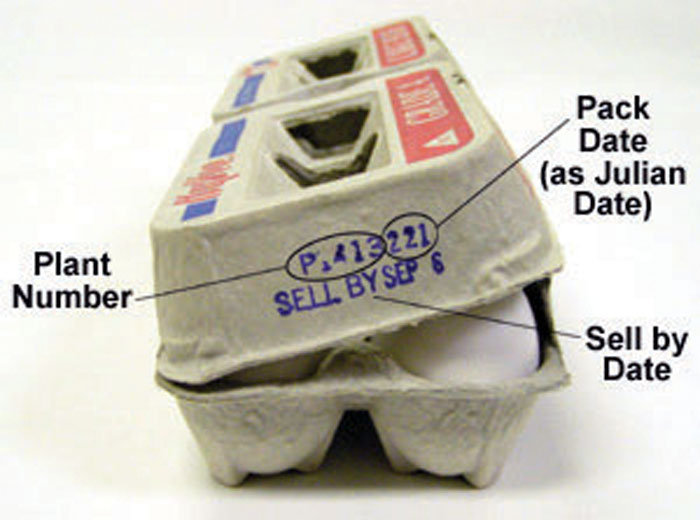Toi Degree: What do the dates on foods mean?
Published 12:00 am Sunday, May 10, 2020
By Toi Degree
For the Salisbury Post
As we have been preparing more meals at home, there have been many questions about expiration dates. They are on all the foods we eat but the real question is, what do they really mean? How will they affect the quality of the foods we prepare? Will they make me sick? I will answer these and other questions that you may have about expiration dates.
Here are the ins and outs of the different dates you find on your food.
• Open date uses a calendar date on a food product. The open date is not a safety date; instead, this label tells how long to display the product for sale at the store.
• Best if used by (or before) date is recommended for best flavor or quality. This is not a date to purchase by, nor is it an indication that the product is unsafe after this date.
• Use by date is the date recommended to use the product by in order to have the best quality. This date has been determined by the manufacturer of the product. Even after the use by date, food can remain safe and wholesome if it has been properly stored and handled.
There is the exception to the use by date and should be kept in mind to ensure the health and the safety of little ones.
• The use by date is required on infant formula because over time, a formula can separate and clog the bottle’s nipple. Do not use infant formulas or similar medicinal food products such as oral nutritional supplements or meal replacements after its use by date.
• Closed or coded dates are packing numbers for use by the manufacturer.
• Packaged on, manufactured on or prepared on has packaging dates closely related to best before dates and are intended to give consumers an idea of how long a product will maintain its quality. These dates are used on food products with a shelf life of 90 days or less.
• Sell by or freeze by dates are other voluntary markings used in Canada specifically and can help the consumer make decisions about purchasing and storing food.
Canned foods are safe indefinitely except when they are exposed to freezing temperatures or temperatures above 90 degrees. A general rule is if the cans are not rusted, dented or swollen, they are safe for consumption; however, the following canned items are best used by the dates outlined below.
• Canned tomatoes — use within 12-18 months of purchase
• Canned fruit — use within 12-18 months of purchase
• Canned vegetables — use within 2-5 years of purchase
• Canned meat and fish — use within 2-5 years of purchase
Eggs
Purchase eggs before the sell by or expiration (EXP) the date on the carton, and use within 3-4 weeks of purchase. Refrigerate them in the original carton, and store in the coldest part of the refrigerator, not in the door.
Meats
Fresh meats such as beef, pork, and lamb should be used within 2-4 days and kept refrigerated at 40 degrees. If it is brought home and placed directly in the freezer, it should be frozen at 0 degrees for up to 8-12 months.
Ground meat and fresh seafood are an exception due to their smaller surface area and increased exposure to oxygen. Ground meats and fish, such as scallops and shrimp should be kept in the fridge only 1-2 days before consumption and can last in the freezer for 2-3 months.
Fish
Lean and fatty fish (cod, flounder, salmon) should be used within 3-4 days when refrigerated. If freezing fish, lean white fish can be frozen up to six months, but fatty fish such as salmon and trout can only be frozen up to two months.
Poultry
Use poultry within 2-3 days of purchase, or freeze for 2-3 months.
“Ever unsure if a food is safe to eat? We know food waste should be kept to minimal, but do not risk your own health and safety. Contact the manufacturer for questions and concerns, and when in doubt, throw it out!”
For the most current information on our programs, like and follow Rowan County Cooperative Extension on Facebook and you can also visit its website at https://rowan.ces.ncsu.edu/.
Toi N. Degree is family and consumer education agent with North Carolina Cooperative Extension. She may be reached by phone at 704-216-8970 or by email at toi_degree@ncsu.edu.






